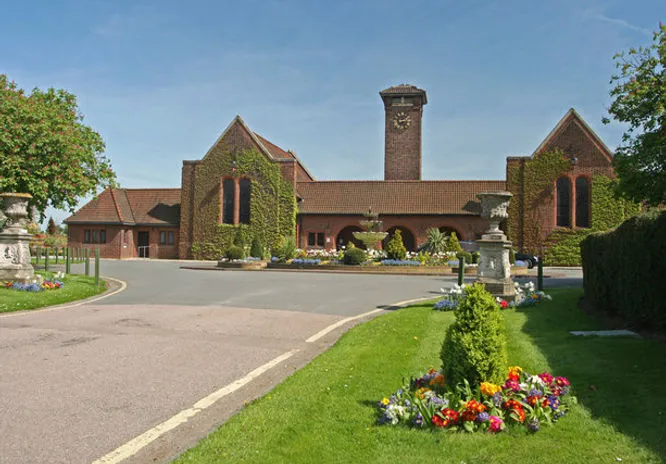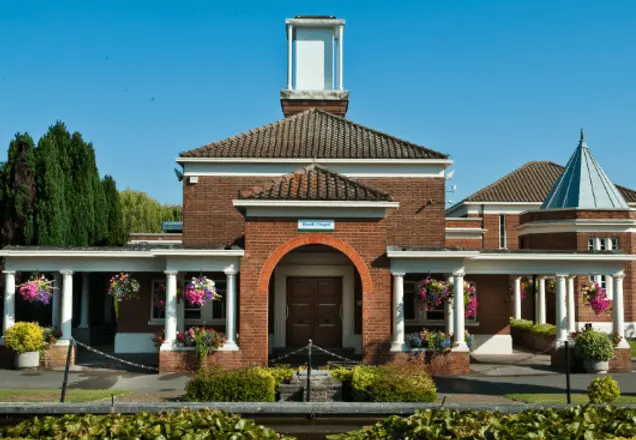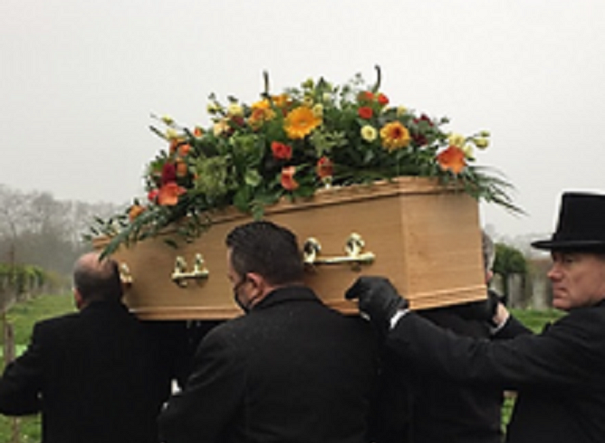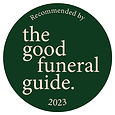Religious Funerals
We understand that for many people who may not share the cultural or religious beliefs of the deceased, it can be difficult to understand the rituals they may have wanted for themselves upon passing. To help you understand the differing values of each major religious group, we have outlined the basic beliefs and practices that govern their funeral requirements.
CHRISTIAN TRADITIONS
HINDU TRADITIONS
SIKH TRADITIONS
MUSLIM
JEWISH TRADITIONS
BAHÁ’I TRADITIONS
BUDDHIST TRADITIONS
CHRISTIAN TRADITIONS
CHURCH OF ENGLAND
CORE BELIEF
At the heart of C of E faith is the belief in God as Father, Son and the Holy Spirit. Christians believe that Jesus is God’s Son, and is responsible for revealing to mankind that God is not only our Father, but is available to us through the Holy Spirit.
FACT
The C of E is the state church of England, and is headed by The Archbishop of Canterbury. As part of the world-wide Anglican Communion, it has over 80 million members in more than 160 countries around the world.
FUNERAL RITES
A C of E funeral service can take many forms according to the circumstances and wishes of the deceased and their family. It can take place in a parish church, a crematorium chapel or in a cathedral; can be short and simple with only a few family members present, or be a larger occasion with music, hymns and a packed church; and may include a celebration of Holy Communion or even a requiem mass.
Traditionally, on the day of the funeral, the family and close mourners gather at the deceased’s house and follow the hearse carrying the coffin to where the funeral service is going to be held and where other mourners are waiting. The service and burial is overseen by a C of E minister.
If you would like to have a C of E funeral, you may ask for a representative from the church to visit you to help finalise details of the funeral service. We can help to arrange this, or if you wish to do so, you can find and contact a Minister directly HERE.
PROTESTANT CHURCH
CORE BELIEF
While each Protestant denomination has its own distinct doctrines and practices, all revolve around the Christian theme that there is life after death for those who have accepted Jesus Christ as their savior. Most Protestants believe that Jesus Christ is both the human and divine incarnation of God and that by having faith in Jesus Christ, believers are able to reject the sin that was imposed upon humanity by the fall of man and attain eternal life with God in Heaven.
FACT
Protestants are non-Catholic Christian members belonging to a large number of denominations, including Lutheran, Methodist, Episcopalian, Presbyterian and Baptist. The result of a reform movement against the Catholic Church, Protestantism is the second largest Christian community with more than 900 million followers worldwide.
FUNERAL RITES
A Protestant funeral is designed to celebrate the deceased person’s life through testimonials and remembrances and may incorporate various customs, depending on the beliefs and wishes of the deceased and the family. Generally held at a funeral home or church, the funeral usually takes place within three days of death, and it is common practice for the body of the deceased to be visited, or “viewed.” Depending on the family’s wishes, the casket may be open or closed.
Cremations are also increasingly popular in the Protestant community, with the body being usually cremated before a memorial service is held. An urn holding the deceased’s ashes is usually displayed during the service.
The service will usually be overseen by a minister and consist of a sermon, prayers, the singing of hymns, eulogies and group readings from the Bible. Some services such as those taking place in Methodist communities allot time for spontaneous remembrances of the deceased.
ROMAN-CATHOLIC CHURCH
CORE BELIEF
Catholics believe Jesus died to redeem man from sin and that in death, a person may be judged to go to Heaven, Hell, or Purgatory. Catholics do not believe that a soul can be assured before death of its place in heaven, and so mourners pray for deceased loved ones to be permitted entrance into heaven. They believe in the eventual resurrection of the body and that on the point of Christ’s second coming, the body will be reunited with the soul.
FACT
The Catholic Church is the largest Christian church with more than 1.29 billion members worldwide who believe that the Pope and the Vatican are the authority and representation of God’s teachings on earth.
FUNERAL RITES
There are three main stages to a Catholic funeral: although not every Catholic funeral will follow the set pattern, it will incorporate elements of for each stage.
The first stage is the “Reception” of the body – or Prayer Vigil. This usually takes place on the evening before the funeral at a funeral home, church, family home or any other location, and allows family and friends to gather together to pay their respects to the deceased.
This is followed by a Funeral Mass – known as a ‘Requiem Mas’s because it includes Holy Communion, or a funeral service without Mass, all of which are held at church. This part of the service can take place either the body or cremated remains present, but where the body is not present, it is referred to as a ‘Memorial Mass’. During this stage, the remains are sprinkled with holy water and covered with a pall at the entrance of the church, and such symbols of Christian faith as the crucifix or bible are placed on top of the casket.
The third and final stage is the Graveside Service, in which the body or cremated remains are buried or placed in a columbarium or mausoleum. All stages of the funeral service are presided over by a priest or an appropriate lay person.
HINDU TRADITIONS
CORE BELIEF
Although Hinduism has no single founder, no single scripture, and no commonly agreed set of teachings, central to the “way of life” of Hinduism is the belief in the supreme God Brahman – the universal soul, found in everything. Hindus believe that life is a cycle of birth, death, and rebirth, governed by the law of Karma: the law that every action has an effect and a cause lies behind everything. Hindus believe that the soul passes through a cycle of lives and that the next life is dependent on how the previous life was lived.
FACT
Dating back over 4,000 years, there are over 900 million Hindus worldwide, making Hinduism the third largest religion in the world.
FUNERAL RITES
Hindu funeral service rituals can vary vastly between sects and subsects but there are basic practices that are concurrent across most. As soon as a death occurs, those who are gathered around the deceased avoid unnecessary touching of the body, as this is believed to be impure, and candles are lit for 30 days to help the soul ascend. According to Hindu customs, the body remains at the home until it is cremated, usually within 24 hours after death and traditionally by the next dusk or dawn – whichever occurs first. The ashes are then scattered at the site of a sacred body of water or which has been of importance to the deceased.
The funeral service, or wake, requires mourners to dress casually with white being the preferred colour for all. An open casket is presented with a priest or “karta” presiding over the proceedings. Hymns and mantras are recited and may be followed by a fire sacrifice, whilst offerings are made to ancestors and gods.
As the mourning period ranges from 10 to 30 days after the death, following the funeral, a ceremony is held at the home of the deceased ten days later in order to liberate the soul for its ascent into heaven. At these memorial ceremonies, visitors are expected to bring offerings of fruit.
At Compassionate Funerals, we can assist you in locating a preferred Hindu priest to further help you in the decision-making processes and locate a Hindu-friendly venue as required for the service you would like to have performed.
SIKH TRADITIONS
CORE BELIEF
Sikhs believe that there is only one God for all people, and regard all people as equal. Adhering to the spiritual authority of the Guru Granth Sahib (the Sikh Holy Book) which conveys the Gurbani (the Word of God) through the teachings of the ten Gurus (Spiritual Teachers) who founded the Sikh religion, Sikhs believe that God continues to reveal himself through the scriptures.
Sikhs also believe that on death the soul moves from one body to the next, on a journey which will only end when the soul has become worthy of returning to God, its creator. Prayers and meditation are considered absolutely essential and prayers are said three times a day, on rising, in the evening and at night before sleeping, either alone, or at home as a family, or collectively at a Gurdwara (Sikh HolyTemple), where prayers are said five times a day.
FACT
Founded in the Punjab region of the Indian subcontinent during the 15th century, the term ‘Sikh’ has its origin in Sanskrit and simply means disciple or student. There are currently over 20 million Sikhs worldwide.
FUNERAL RITES
As death is seen as a natural stage in the transmigration of the soul, Sikh funeral rites are often very simple. Following the washing of the body, the deceased is prepared and dressed in new clothes, with female relatives tending to woman’s body, and male relatives tending to a man’s. The five articles of the Sikh faith – Kesh (unshorn hair), Kangha (a small wooden comb) Kachha / Kachhehra (shorts usually worn as an undergarment), Karha (an iron bracelet) and Kirpan (a sword of unspecified length) – are placed along the body, and if wished, may also be surrounded with flowers.
A short prayer ceremony is often held at the funeral home before the body is placed on a bier or hearse and readied to be taken to the site of cremation. Prayers are said while the body is being transported and special hymns sung. In traditional ceremonies a member of the family will light the funeral pyre (or press the button for the body to be taken), and the ashes will be collected to either be scattered in running water, or buried where the cremation took place.
As it is held that there should be no mourning at the death of a Sikh, members of the congregation usually leave immediately on the point of the cremation having begun, and may attend another funeral service at the Gurdwara during which there can be readings from the Guru Granth Sahib and music, hymns and prayers.
For guidance on the funeral rites for a Sikh funeral, SEE HERE.
MUSLIM
TRADITIONS
Islam is an Abrahamic monotheistic religion which teaches that there is only one God (Allah) and that Muhammad is the messenger of God ﷺ. It is the world’s second-largest religion with over 1.8 billion followers or 24% of the world’s population, most commonly known as Muslims.
Muslims make up a majority of the population in 50 countries. Islam teaches that God is merciful, all-powerful, unique and has guided humankind through prophets, revealed scriptures and natural signs.
The primary scriptures of Islam are the Quran, viewed by Muslims as the verbatim word of God, and the teachings and normative example (called the sunnah, composed of accounts called hadith) of Muhammad ﷺ.
Funerals in Islam (called Janazah in Arabic) follow fairly specific rites, though they are subject to regional interpretation and variation in custom. In all cases, however, sharia (Islamic religious law) calls for burial of the body as soon as possible, preceded by a simple ritual involving the ritual bathing (Ghusl) and shrouding the body in a cotton (kafan), followed by salah (prayer). The blood relatives will carry out the Ghusl. Men to wash men and women to wash women
Cremation of the body is extremely rare.
JEWISH TRADITIONS
CORE BELIEF
Whilst there are many denominations within Judaism that hold differing views (i.e. Liberal Judaism, Reformed Judaism, Conservative and Orthodox Judaism etc.), certain key concepts are universally practiced by all streams of Judaism. At the heart of Judaism, is the belief that holiness can be attained through following the laws (Halakhah) and commandments laid out in the Torah (the Old Testament), and that human beings are created in the image of God. Though there is no explicit afterlife in Judaism, many Jews believe that after death the soul of the deceased is judged and those who have led perfect lives are let into the World to Come, whilst those who did not must wait to enter the World to Come.
FACT
Originating in the Middle East more than 3,500 years ago, Judaism has over 13 million followers throughout the world. And whilst Moses is looked to as the main founder of Judaism, Jews can trace their history back as far as Abraham.
FUNERAL RITES
Based on Jewish laws, traditions and customs, a Jewish funeral usually takes place within 24-hours of the occurrence of death, although allowances is made by some sects of the faith to enable family and friends living abroad to travel in time for the funeral. The Taharah – a ritual cleansing in which the body is cleaned and groomed, is completed before the Levayah – the funeral procession, in which the body is accompanied to its final resting place. To be able to attend the procession is considered to be one of the most important mitzvot (commandments) Jews can perform as it ensures their loved ones are able to find and receive comfort in their final resting place, and also marks the beginning of Shiva – the seven days of mourning. Whilst there are Reformist and Liberal sects which permit cremation, it is not permitted in Orthodox and Conservative Jewish practice.
All elements of a Jewish funeral and its services must be kosher. From the food offered and brought into a grieving family’s home, to the coffin of the deceased, which is required to be made out of wood and containing no nails.
SEE HERE for further details on understanding Shiva and how to support those who have lost a loved one in accordance to Jewish customs.
BAHÁ’I TRADITIONS
CORE BELIEF
The Bahá’í religion accepts all other faiths as true and valid, and accepts the divine nature of the missions of Abraham, Moses, Zoroaster, the Buddha, Jesus and the Prophet Muhammad.
Founded by a young Iranian called Bahá’u’lláh who stated that a messenger who was the latest in a long line of prophets including Moses, Muhammad and Jesus Christ would soon arrive, Bahá’ís believes all prophets and divine manifestations are a further stage in the revelation of God. Whilst Bahá’u’lláh himself stated that he was not God’s final messenger, Bahá’ís believe he was the most recent Divine Manifestation of God.
At the core of Baha’i faith is the belief that all human beings are equal, possessing a soul that lives forever, and that as members of a single race, all mankind will soon be united in a single global community – despite their differences. With death, Bahá’ís believe a person’s soul is released from its physical bonds and enters the spiritual world.
FACT
The Bahá’í faith is one of the youngest of the world’s major religions and was founded in Iran in the 19th century. Rooted in Islam, today it is totally independent of it origin religion. There are an estimated 6 million Bahá’ís in the world practicing their faith across 235 countries, including Great Britain.
FUNERAL RITES
Whilst flexible and relaxed in order to allow for people of all religions to accommodate their cultural practices as part of a Baha’I funeral, there are some basic laws with Bahá’ís must adhere to. The first of which is that the recently departed must be buried no more than one hour’s travel time from the place of death, so as to discourage persons of faith from becoming attached to any particular earthly site. The body is washed and wrapped in a white shroud, and where possible, a ring inscribed with the words, “I came forth from God, and return unto Him, detached from all save Him, holding fast to His Name, the Merciful, the Compassionate” is placed on a finger of the deceased. The body is then placed in a coffin for interment, and cannot be cremated or embalmed unless required by law.
Because the burial must happen quickly, memorial services are normally held within two or three days after the death having occurred. The ceremonies are urged to be simple and dignified, with just one requirement – that the Prayer for the Dead be recited as a forerunner for any other prayers the family may wish to have read.
BUDDHIST TRADITIONS
CORE BELIEF
Buddhism encompasses a wide variety of traditions, beliefs and spiritual practices largely based on original teachings attributed to the Buddha. Across the differing denominations of the faith, Buddhists commonly believe that life and death are a part of a Samsara: a cycle in which actions in this life and all previous incarnations of life lead to future reincarnations. Buddhists strive to be free from all desires, ego and all notions of the self and in doing so, be liberated from the cycle of death and rebirth and reach the state of enlightenment and nirvana.
FACT
Believed to have originated in India, Buddhism is practiced by an estimated 488 million people worldwide.
FUNERAL RITES
Buddhists regard death as an occasion of major religious significance. For the deceased, it marks the moment when the transition begins to a new mode of existence and rebirth, whilst for the living, it is not only a reminder of impermanence but an opportunity to assist the deceased person as he or she moves on to a new existence.
According to the Last Rites of Amitabha, the body of the deceased is not to be touched, disturbed, or moved in any way, as Buddhists believe the soul does not leave the body immediately after breathing has stopped, and the deceased should be dressed in the everyday clothes they would normally wear.
Buddhist funerals may often take the form of a funeral service before burial, a funeral service before cremation, or a memorial service after cremation. In all variations, the service and related events are simple, solemn, humble and dignified to permit deep reflection. During the wake, the body or urn is visited by loved ones and offerings, traditional rites and prayers which do not conflict with Buddhist precepts are given. A wake can last for as long as is wished for by the family.
At Compassionate Funerals, we can aid you in identifying both the length and requirements of the funeral rites in accordance with your interpretation and school of Buddhist tradition.
Words From Families We’ve Served
Read More Reviews
See what other families in Wanstead and East London are saying our services on Google Reviews.
153+ Reviews
Multi-Faith Funerals
We are sensitive and committed to meeting the cultural needs of the many wonderful and diverse communities which make up Great Britain.
That’s why we will work closely with you to ensure the funeral rites and rituals you need are honoured, respected and delivered.
Our Funeral Services

Burials
From £2,415

Cremations
From £2,415

Repatriations
From £1,870

Coffin & Shroud
From £400

Funeral Transport
From £150

Coffin Bearers
From £80






